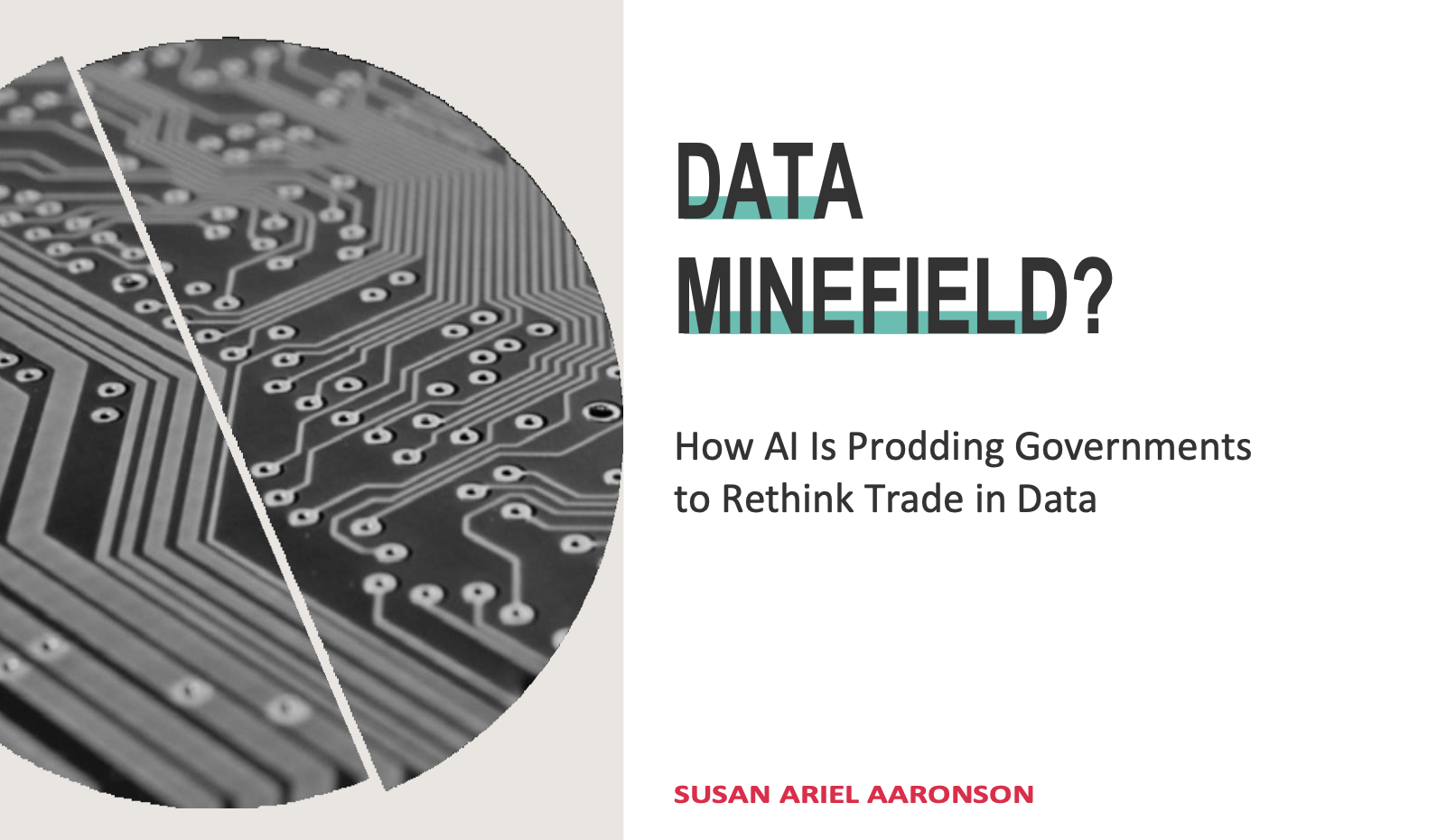Personal data has become essential both to mitigate COVID-19 and to rescue our slowing economy. For example, Google is using its large trove of personal data to track the effectiveness of social distancing. Firms are also using personal data to supply us with goods and services from toilet paper to in-home meetings. Meanwhile, policymakers are using personal data to provide individuals with stimulus checks and unemployment insurance. Governmental bodies are also teaming up with data-sector firms to direct users to testing clinics, inform the public about COVD-19 disinformation or feed workers on the frontlines.
Recent Publications
AI could become the ‘new steel’ as overcapacity risk goes unnoticed
July 24, 2024 Policymakers in the U.S., Saudi Arabia, Japan, the U.K., and the EU have announced huge public investments in artificial intelligence, which follow large private sector investments. Hu Guan – Xinhua – Getty Images In the 19th century,...
Data Disquiet: Concerns about the Governance of Data for Generative AI
The growing popularity of large language models (LLMs) has raised concerns about their accuracy. These chatbots can be used to provide information, but it may be tainted by errors or made-up or false information (hallucinations) caused by problematic data sets or...
Facing Reality: Canada Needs to Think about Extended Reality and AI
Although Canada is a leader in becoming the first nation to develop an artificial intelligence (AI) strategy, it is falling behind other countries in extended reality (XR) competitiveness. In this paper, the authors look at why Canada is lagging in this area and what...













